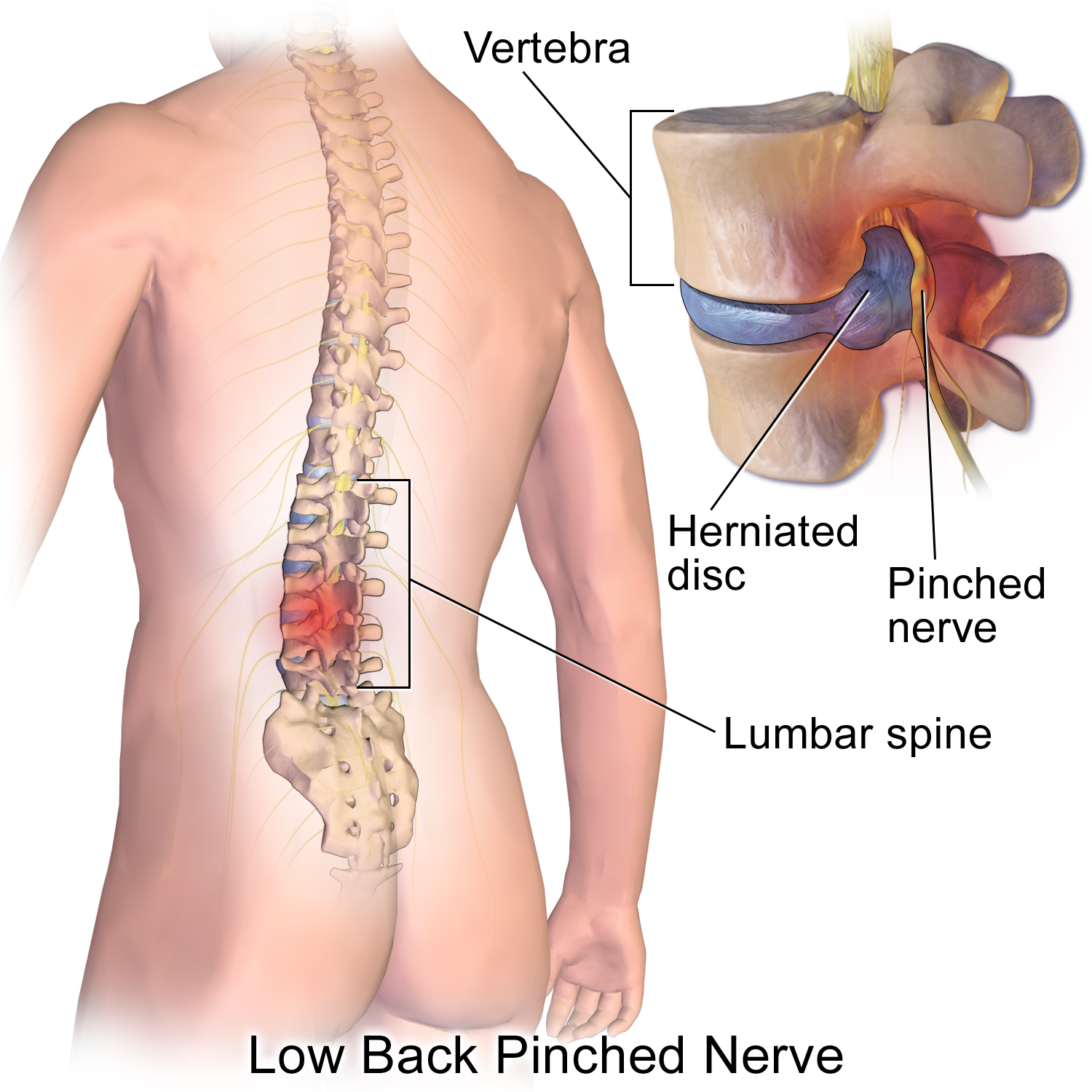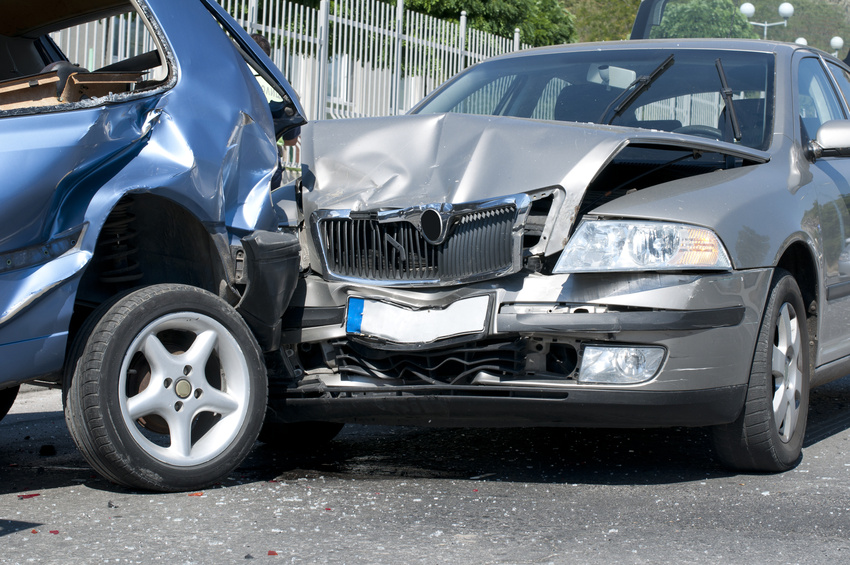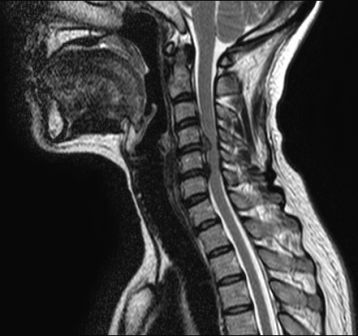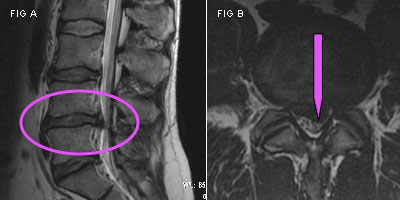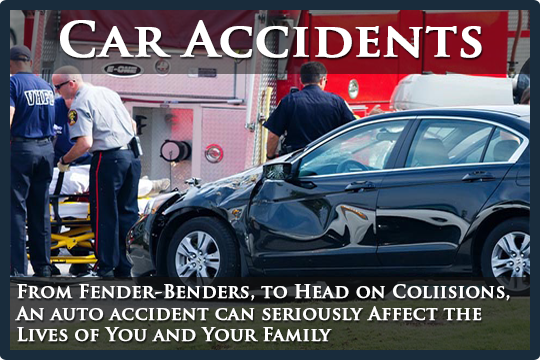Free Car Accident Disc Herniation Case Evaluation -- Call us Now at 888-375-9998
Car Accidents and Herniated Discs
MRI Herniated Discs are Caused by Trauma, Such as Car Accidents.
Lumbar disc herniations from car accidents can intrude on nerves, causing radiating pain
Discs are circular structures made of fluid located in between the vertebrae in your spine. The invertebral discs act like cushions in your spine. The discs help absorb shock and trauma to the spine.
The spine is home to a bundle of nerves, which transmit pain and numbness throughout the body. Because they are so close to the spine and nerves, healthy discs are crucial to your entire nervous system. Nerves transmit pain and sensation from the spinal column throughout the whole body. Properly formed discs normally do not impact or pinch the nearby nerves. However, when a disc herniates, it gets pushed outside of the spine. This can cause a pinching of the nerve (also known as nerve impingement), which causes significant pain and numbness.
Disc Herniation & Car Crash Statistics
Did you know that most herniated disc injuries form due to trauma, such as a car crash? If you were injured in a car crash and an MRI confirms you have a disc herniation, the two are likely related. Learn more by viewing our car crash disc herniation statistics.
Herniated Disc Verdicts and Settlement Values
Car accidents commonly occur due to negligence (civil wrongdoing, such as careless driving). If you suffered a herniated disc injury as a result of a car crash that was not your fault, you may find recourse in pursuing a car accident claim. In order to understand your potential case value, review our disc herniation car accident case jury verdict and settlement research.
Disc Herniation on MRI:
What Now?
Disc herniations can usually only be seen on MRI. If your MRI came back positive for a herniated disc, click here to learn more about what the radiologist observed and the implications of a disc herniation or protrusion on a lumbar, thoracic or cervical MRI film.
Herniation of the Disc Caused by Car Crash
When your body undergoes a significant trauma, such as a car accident (like a rear end car accident, a sideswipe T-bone collision, or a front end impact) the trauma can push, bulge, herniate, or rupture the water-filled discs that are in between your spine. If the herniation extrudes out of the disc space, the gel like nucleus pulposus will actually pierce the wall of the annulus and impinge on the nerve endings. This is what causes pain from herniated disc following a car accident. The disc herniation affects the nerves that are encapsulated in the spine. Nerve impingement from a herniated disc due to a car accident can also cause numbness and tingling in the hands arms legs and feet. The nerve endings located in the spine transmit pain and numbness and tingling throughout the body. This is why a herniated disc from a car accident can cause both pain and numbness in anatomical areas far away from the spine.
How Do I Know if the Car Accident Caused my Herniation?
It is impossible to say whether a car accident 100% caused the disc herniation in question. However, using medical evidence and objective testing, we can determine more likely than not whether the car accident caused the disc herniation. The most telling objective test is the MRI, which stands for magnetic resonance imaging.
An MRI, like the one pictured above, can display disc herniations following a car accident injury.
An MRI following a car accident will demonstrate to the radiologist the disc spaces between the spine. A radiologist can then determine whether there are disc herniations in the patient's spine. If the patient has a rapid onset of pain, numbness, or tingling in the weeks or months following a car accident, and the MRI confirms that the patient does have a disc herniation following the car accident, it is safe to assume that the disc herniation was caused by the car crash. Another way to determine whether the disc herniation and corresponding pain is related to the car accident is to analyze not only the disc herniation, but also the company that it keeps. Specifically, your doctors will look for evidence of annular tears which are commonly caused by trauma, not due to old age. If a patient complains of pain following a car accident and the MRI reveals that they have both disc herniations and annular tears, it is likely that the car accident caused the disc herniation in question. A doctor must also look at the health of the patient's spine and discs located within the spine. For instance, that does the patient have disc degeneration? Does the patient have disc dehydration? Does the patient have osteophytes that are surrounding the disc herniation? These are bony changes that take place over the course of time, so if a herniation is covered in osteophytes, it is not likely related to have been caused by a recent car accident.
What if I had a Bad Back or Bad Neck Before the Car Accident and the Car Accident Made it Worse?
Aggravation or Re-Injury of a Disc Herniation following a Car Accident.
As one gets older, the disks in your spine can lose some water and become more susceptible to injury. This is called disc degeneration and is common with age. With disc degeneration, the disc become less flexible and are more likely to rupture or herniate from a trauma such as a car accident.
The law says that the defendant takes the plaintiff as he is. This legal theory is commonly referred to as the Eggshell Doctrine. This means that if the plaintiff already has a compromised spine prior to a car accident, and the defendant hits the plaintiff in a car accident causing the plaintiff more spinal problems and pain, the defendant is liable for the aggravation or reinjury of the disc herniation following the car accident. If the car accident herniated disc case does not settle before trial, a jury will be asked to evaluate the plaintiff’s damages and to apportion those damages that were related to the car accident only. In many venues, if the jury is unable to apportion the pain-and-suffering for the aggravation of the pre-existing disc herniation, the jury must award all the pain and suffering associated with the disc herniations following the car accident. This is a confusing legal topic so let's illustrate it with an example. If Johnny has a disc herniation at the C 5-6 level in his neck before a car accident, this is considered a pre-existing disc herniation. If he is then rear-ended in a car accident by Billy, which causes him more cervical pain and an aggravation of his pre-existing disc herniation, Johnny is able to sue Billy in a car accident lawsuit for the aggravation of his pre-existing cervical pain. If the case does not settle before trial a jury will be asked how much the pain and suffering of Johnny is worth factoring in that he did have pre-existing neck pain from his cervical herniation. If a jury is unable to determine the difference between how much pain he was in now versus how much pain he was in before the car accident, many venues allow the jury to award Johnny his full damages associated with his disc herniation both prior and subsequent to the car accident.
10 Common Car Accident Disc Herniation Questions
Car accidents can cause lifelong herniations, disc protrusions, annular tears and pain and suffering.
How can I get compensated for my disc herniation following a car accident? If the car accident was not your fault (caused by someone else) you can pursue a car accident disc herniation lawsuit. In order to do this, you will likely need to speak with an attorney who regularly handles disc herniation injuries in a car accident context. If you would like to speak with one of our attorneys about your potential case now, call us at 888-375-9998.
What is a disc herniation car accident case worth? Each disc herniation car accident claim is different from the next one. As lawyers who regularly handle these kinds of cases, we often times analyze the liability, the damages sustained as a result of the disc herniation, and the defendants insurance policy. So unfortunately, there is never a general answer as to what a potential disc herniation lawsuit is worth. That being said, please contact us if you would like a free case consultation.
How do I know what the person who hit me has for insurance? It may be difficult for you to ascertain the defendant’s insurance policy limits without hiring a car accident lawyer. The good news is that most car accident lawyers, including our car accident law firm, work on a contingency fee basis. This means that you do not have to pay the lawyer anything to investigate your case and he or she will only get paid if you collect a sum of money.
Who will pay for my medical bills relating to my disc herniation from this car accident? This too is on a case-by-case basis. If you have no-fault insurance through your auto automobile insurer, your doctor should submit your bills to your no-fault or PIP insurer. Your auto insurance will likely cover a portion of your bills if you have this option. If not, your only recourse is to attempt to have the defendant who hit you pay your medical bills. This may require a lawsuit or at least representation by a qualified car accident disc herniation lawyer.
My MRI report says that I have a cervical or lumbar disc herniation, but it doesn't mention the car accident. Does this mean that the car accident did not cause the disc herniation? Not at all. Usually MRI reports are silent as to the cause of the disc herniation. MRI reports are interpreted by radiologists who have likely never met the patient. For this reason, radiologist and MRI reports typically do not include the history of trauma associated with the injury. This explains why somebody could get their MRI report back and there may not be mention of a car accident even though there is reference to a cervical disc herniation or a lumbar disc herniation.
I have a disc herniation from a car accident but I do not have a lawyer. I'm trying to work it out with the insurance company myself. Will I be able to make a financial recovery equal to that of someone represented by counsel? Sadly, the statistics say that you cannot make the same recovery that you would make had you had a lawyer representing you. More importantly your claim is subject to a strict statute of limitations period. You do not want to wait too long to file your claim because if you do, it will be forever waived. Often times, insurance company risk adjusters will play games with unrepresented parties, sending them on wild goose chases to obtain all kinds of documents. This is merely a time wasting maneuver in an attempt to either make you go away or make you waive your claim by failing to bring it within the specified statute of limitations period. This is why we advise you to speak with an attorney for free and learn about your rights and bringing a disc herniation lawsuit claim. The insurance company has thousands of lawyers working for them to minimize your case. Don’t you want someone in your corner to represent you?
Will my disc herniation that occurred from a car accident fix itself? Or will I require more invasive techniques like surgery? This is a question that you will need to go over with your doctor. This is not something that we, as car accident disc herniation lawyers, feel comfortable answering. That being said, disc injuries such as disc bulges, disc herniations and disc protrusions do not typically heal themselves. This is why disc herniations are commonly referred to as permanent lifelong injuries.
I was in a car accident but I did not feel any pain at the scene so I did not go to the hospital that day. The pain came about some days later. I now find out that I have a herniated disc following my car accident. Can this be related to the car wreck? If so, how is it that I did not have pain at the scene of the accident? When one undergoes a serious dramatic injury such as a car accident, the body physically whips forward and back. This is referred to as whiplash. When your body experiences this whiplash back-and-forth trauma, it is the body's reaction to initiate adrenaline via a fight or flight syndrome. This basic survival instinct is still with us today. What this means is that your body masks the pain via adrenaline. This is why many people do not report injuries from car accidents until sometime after the actual event. Similarly, a disc herniation may not cause pain until some days after the trauma. This is normal and is expected in these kinds of car accident incidents. If you experience any kind of pain or numbness or tingling following a car wreck, seek immediate medical attention.
I have been speaking with my insurance company regarding my car accident disc herniation. Despite what I think and what my doctor thinks, the insurance company believes that my disc herniation is not related to the car accident. How can I combat this? If an insurance company is telling you that you were not hurt from the car accident, you are not alone. In fact, almost all of our clients are told that, either they are not hurt, or that they are hurt but that it's unrelated to the car accident in question. Insurance companies deal with millions of claims each year in the United States. Their goal is to make money for their shareholders by maximizing profits and minimizing payouts on claims. For this reason, insurance companies have in-house radiologists and orthopedic doctors who regularly testify that a disc herniation is not related to the subject car accident. This does not mean that your car accident did not cause your disc herniation, so you should not give up on trying to pursue your claim. For more information on what you can do, speak with us today at 888-375-9998.
What is an annular tear? Why do I have annular tears on my MRI along with my disc herniation? Annular tears commonly accompany disc herniations and disc protrusions in car accident injuries. An annular tear takes place when the fluid inside of the inner vertebral disc spews out of the center of the disc and impacts the annular wall. As discussed above, this bulging or protrusion of the disc impinges or touches the nerve ending. Nerves transit nerves transmit pain and numbness throughout the body so this can cause serious symptomology in a patient. A discogram, which is an x-ray guided procedure under local anesthesia, can best determine whether the patient is suffering from an annular tear.
Disc Herniation Due to a Car Wreck: What Now?
A car accident can cause disk herniations and annular tears. SPEAK WITH OUR CAR CRASH LAWYERS TO START PICKING UP THE PIECES.
A disc herniation on an MRI is a serious diagnosis and can result in permanent pain and suffering for the rest of your life. In order to ensure you are able to get your medical bills covered, along with compensation to you for your damages, call us today at 888-375-9998 for a free disc herniation claim consultation. If you prefer email, please fill out the case evaluator below. We look forward to hearing from you.
Do I Have a Case?

